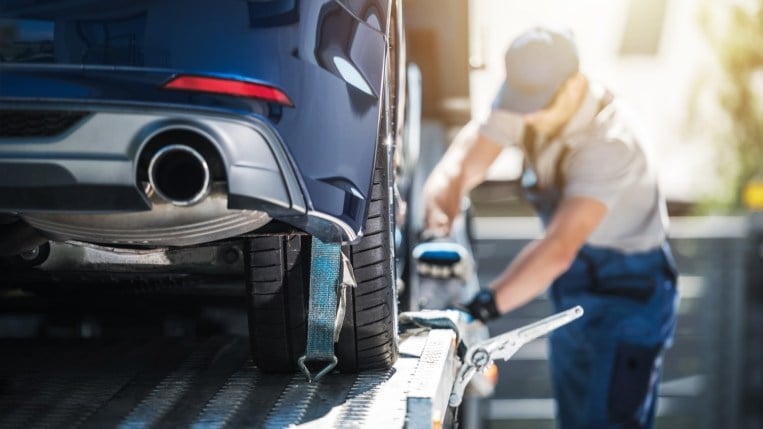
Consumer Financial Protection Bureau (CFPB) chief Rohit Chopra says the government has seen only a small spike in illegal repossessions. But “the problems could get much worse unless we stay ahead of it.”
This week, the agency issued new guidance to lenders. The new rules say the CFPB will be “closely reviewing repossession practices by loan servicers that might be tempted to circumvent the law” by seizing cars.
Why the new concern? Because spiking used car prices make it tempting for lenders to snatch a car and try to resell it quickly.
“The concern I keep raising is this is going to create incentives for more-aggressive repossession conduct because you can quickly resell this in the used-car market, in some cases over Kelley Blue Book level,” Chopra told The Washington Post.
Price Surges Change the Math for Lenders
For decades, the math behind used car loans has stayed the same. When borrowers fall behind on car payments, lenders give them a grace period to catch up on payments. They did this because it raised more money than the lender could get by seizing the car and reselling it.
Lenders may write the grace period into the loan contract itself. Or it may be established by lenders in a letter they send to borrowers who fall behind.
But used car prices have increased dramatically over the last year. The average used car sold for more than $27,000 in January. That’s 29% higher than one year before.
January’s number was slightly lower than December’s, but the slight decline could prove to be a fluke. Experts from Kelley Blue Book parent company Cox Automotive expect prices to rise again in coming months. Tax return season traditionally kicks off a surge in used car prices. Russia’s invasion of Ukraine could also trigger an increase in new car prices, which sends ripples into the used car market.
Agency Has Already Seen Abuses
The change means lenders can often make more money by seizing and immediately reselling a car than by giving the borrower a chance to catch up. The CFPB has received reports of lenders violating their own grace periods.
The agency had been tracking reports of abusive repossession practices since before the COVID-19 pandemic upset the balance of the auto industry. Reports include illegal repossessions and fees for recovering belongings left in repossessed vehicles.
In some cases, lenders have ignored bankruptcy court orders preventing seizure or repossessed cars belonging to borrowers who were current on their payments because of administrative errors.
“In other cases, contrary to stated payment practices, servicers applied partial payments to late fees first. Reordering payments can make it appear that people are further behind than they might be, triggering a repo,” the Post reports.
Longer Loans, Higher Payments
The CFPB’s warning points to a troubling trend in car buying. We’re paying higher payments, for longer terms, than ever before.
As car prices have risen, lenders have offered longer loan terms to allow more buyers to finance a car. Credit agency Experian reported last year that the percentage of car loans stretching 72 months or longer is higher than ever.
As prices have grown, the average monthly payment has grown with them. In January, Cox Automotive reports, the average car payment hit $685.
In today’s market, Chopra points out, many borrowers need their car to make enough money to pay for their car.
Part-time driving for delivery services and ride-hailing apps like Uber and Lyft is increasingly how Americans make up for shortfalls in their household budgets. “You have a lot more people who are involved in moving goods, driving, and actually so much of the independent construction trades depend on people having light trucks,” he explains.







